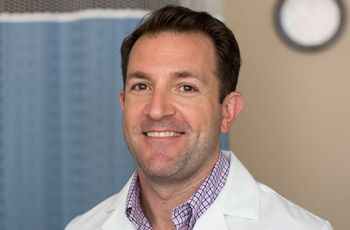Announcements
Anthony R. Artino Jr., PhD, recently joined SMHS as professor in the Department of Health, Human Function and Rehabilitation Sciences.
The George Washington University (GW) School of Medicine and Health Sciences (SMHS) launched a GW COVID-19 Response Fund to support the academic and clinical mission of SMHS during this global health crisis.
Health care professionals recently published an article looking to answer a vital question for the current times: How can medical resources be allocated fairly during the COVID-19 pandemic? The article is co-authored by James Phillips, MD.
A team featuring George Washington University (GW) School of Medicine and Health Sciences (SMHS) MD and health sciences students and alumni won the AMA Insurance Global Health Challenge for its essay and video on global health volunteerism.
The combination of photothermal and epigenetic therapies may help to maximize the therapeutic benefits for melanoma, and possibly other tumors, according to researchers from the George Washington University School of Medicine and Health Sciences (SMHS).
A new book by Gaetano R. Lotrecchiano, EdD, PhD, associate dean of innovative and collaborative pedagogy at GW and associate professor of clinical research and leadership and of pediatrics at SMHS, looks at the relationship between team science and cross-disciplinary studies through the lens…
A research letter, published by members of SMHS and Children’s National Hospital in the Journal of the American Academy of Dermatology (JAAD), details results of a study that found a gap in access to treatment for severe acne among low-income communities.
A paper in npj (Nature Partner Journal) Genomic Medicine by Shawneequa Callier, JD, MA, of SMHS, examined the progress and challenges in increasing the amount of data on individuals with African ancestry in genomic research.
Congratulations to Kenneth Harwood, PhD, PT, co-director of the Health Care Quality Program at SMHS, for being named a 2020 recipient of the Catherine Worthingham Fellow of the American Physical Therapy Association (APTA).
In a literature in The Journal of Trauma and Acute Care Surgery, researchers examined the prevalence of hypocalcemia, a condition in which there are low levels of calcium in plasma, among trauma patients.





